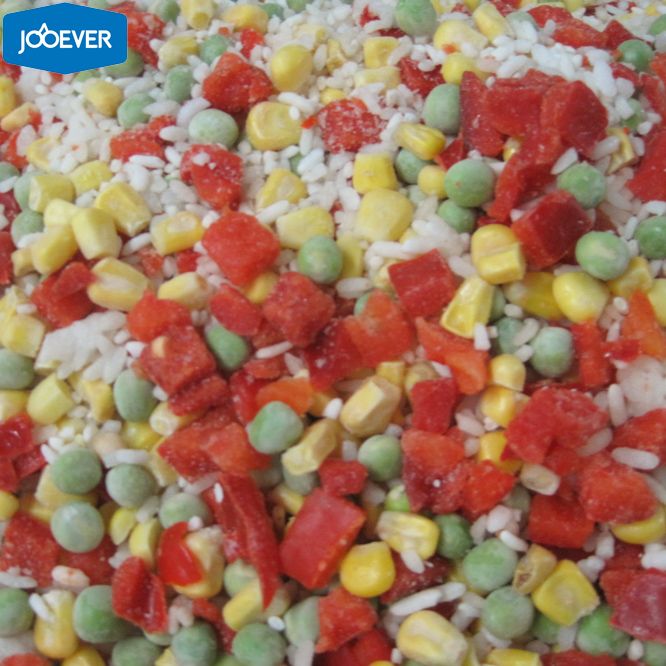When it comes to fruits and vegetables, there’s a common belief that fresh is always healthier than frozen. But is that really true? Let’s dive into the science and see what the experts have to say about the nutritional comparison between fresh and frozen produce.

Why Do People Think Fresh Is Healthier?
The idea that fresh food is better for your health often stems from the notion that fresh means less processed, and less processed is automatically healthier. In many cases, this logic holds up—highly processed foods can contribute to overconsumption of calories and nutrient-deficient diets. However, food processing has also made great strides in improving public health, especially for vulnerable populations like infants, the elderly, and pregnant women.
Interestingly, processed foods—especially frozen and canned fruits and vegetables—contribute significantly to our nutrient intake. In fact, they often provide more nutrients than fresh produce, particularly in terms of affordability and convenience. Enriching and fortifying processed foods has helped reduce nutrient deficiencies across many populations.
Levels of Food Processing
Food processing comes in many forms, ranging from minimally processed options like washing and packaging produce, to more intensive methods like freezing and canning. At the far end of the spectrum are highly processed items, such as frozen meals and TV dinners, which could pose more nutritional concerns.
But just because a food is processed doesn’t automatically make it bad for you. In fact, many foods—like frozen fruits and vegetables—offer great nutritional value, and this is where science comes into play.
Fresh vs. Frozen: What Does the Science Say?
The question of whether fresh produce is always more nutritious than frozen is complicated. The nutritional content of fruits and vegetables can vary greatly depending on several factors, including how they were grown, when they were harvested, and how long they’ve been stored. For instance, produce that sits in a grocery store for several days can lose some of its nutritional value.
A 2017 study published by Lim and colleagues compared fresh, frozen, and fresh-stored (produce stored in a refrigerator for five days) fruits and vegetables. For example, when comparing the vitamin C content in broccoli, both fresh and frozen were almost identical, while fresh-stored broccoli showed a decrease in vitamin C.
However, the results weren’t always consistent. For spinach, frozen spinach actually had more folate than fresh spinach, while vitamin C was higher in the fresh variety. For other produce like corn and peas, frozen versions were often found to be more nutrient-dense than their fresh counterparts.
Key Findings from the Study
1. Ascorbic Acid (Vitamin C): For vegetables like broccoli, corn, and peas, fresh and frozen were almost the same, but fresh-stored produce tended to lose more nutrients over time.
2. Folate in Spinach: Frozen spinach had more folate than both fresh and fresh-stored spinach.
3. General Conclusion: Most comparisons found little to no significant nutritional differences between fresh and frozen produce. In some cases, fresh produce stored for a few days showed a decline in nutrient content, while frozen produce maintained its nutritional value.
Conclusion: Fresh vs. Frozen – What’s the Verdict?
The idea that fresh fruits and vegetables are always nutritionally superior to frozen varieties is a myth. While there are differences in certain nutrients, frozen produce often holds its nutritional value better than fresh produce that has been stored for several days. The most important factor is variety—whether fresh, frozen, or canned, it’s crucial to include a diverse range of fruits and vegetables in your diet.
In the end, the best advice is simple: eat a variety of fruits and vegetables from different sources, and don’t stress over small differences in nutrient content. What matters most is that you actually eat the produce in the first place!
Frequently Asked Questions (FAQs)
1. Are frozen fruits and vegetables as healthy as fresh ones?
Yes, in many cases, frozen fruits and vegetables can be just as nutritious as fresh produce. The freezing process helps retain many nutrients, and fresh produce can lose some of its nutritional value if stored for long periods.
2. Does storing fresh produce reduce its nutrient value?
Yes, fresh produce that is stored in the fridge for several days can lose some of its nutrients, particularly vitamin C. Frozen produce, on the other hand, tends to maintain its nutritional content better.
3. Is it better to buy frozen or fresh vegetables?
It depends on your preferences and circumstances. If fresh vegetables are locally sourced and consumed soon after purchase, they can be very nutritious. However, if convenience, affordability, and nutrient retention are priorities, frozen vegetables are a great option.
